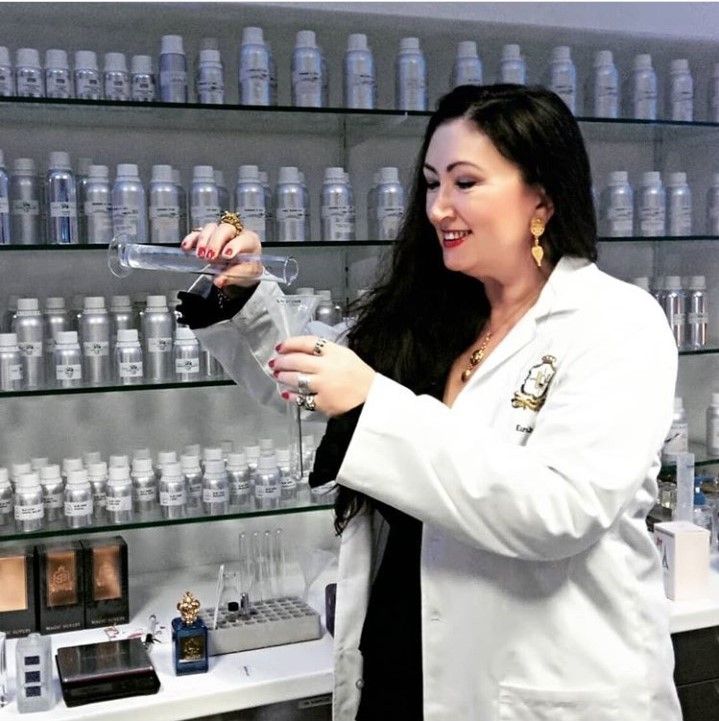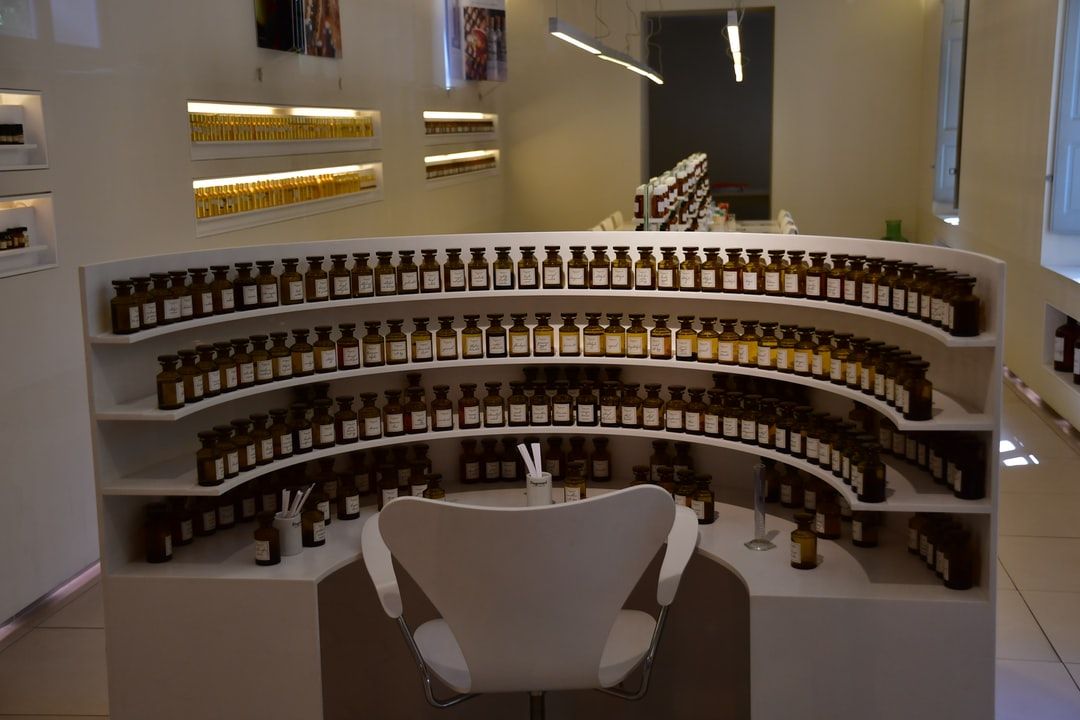
Now, I'm lucky enough to have a large professional studio, but it wasn't always like that, and the lack of space never hindered my progress or the quality of my perfumes. So, don't stress about your space
VENTILATION
You should always work in a well-ventilated area so that you don’t confuse your nose with your previous creations. Be sure that your workspace is a neutral space free of any other scents (this includes your own splash of perfume and even your deodorant). Your nose will thank you for allowing it to focus.
THE SURFACE
Always work on a stable flat surface without clutter to avoid spills, breakages, and other accidents. The last thing you want is to spend time and energy creating something fabulous only to knock it over and lose it at the last minute.
PERFUMERS ORGAN
This is one of the most vital parts of your scent workspace.
The organ is a space where you can be creative and have all of the necessary ingredients for your original scents at your fingertips. Do your research and use images to inspire your imagination to create an organ as personalised as you are a perfumer.
It can look however you want it to, but it MUST be well organised in a way that helps facilitate your work. Some people choose to arrange their oils by scent family, others by alphabetical order, and some by frequency of use. Remember to keep your organ in a space that will not be subject to major temperature changes or sunlight.
By the way, did you know that perfumers and organists have a lot in common?
Think for a moment about the terminology that is used in both fields. A musician uses notes to express feelings and emotions, and a perfumer uses ‘notes’ of flowers to create different moods in scent. We refer to combinations of two or three raw materials as ‘accords,’ which is exactly like the chords that organists use to create their music. This is why it is called a perfumer’s organ, as like the musician’s organ it is instrumental to emotional creativity.
Back to your scent space...
Equipment should be right at hand: pipettes (in separate receptacles for new and used pipettes), scales, writing utensils, your own recording system, and a waste bin. Paper is crucial for writing your formulas and ideas must be organised so that they are not easily misplaced. You will thank yourself for this later!
SAFETY FIRST
Safety is No Accident!
- Never apply neat (undiluted) oils directly to your skin. If you get oils on your skin, wash immediately. If you get oil in your eyes, rinse immediately and seek medical attention.
- Use powder free gloves to handle your work when using neat oils
- Don't wear your Dior dress when working, as it will inevitably get splashed and ruined
- Use paper strips to smell your creations rather than smelling directly out of the bottle.
- Take your time! Rushing = Accidents.
- Always work on a stable flat surface without clutter to avoid spills, breakages, and other accidents.
- Always work in a well-ventilated area. An air purifier is a good idea if you have one.
- Your nose needs regular breaks to avoid olfactory fatigue, so make sure you take them.
Olfactory overload and fatigue are no joke. Smelling for prolonged periods of time can lead to dizziness or headaches so please take a break every 30 minutes. Get some fresh air, leave the room where your oils are, drink a glass of water and if you have any natural wool put it to your nose and inhale deeply for a second or two.
Do not smell coffee beans; this is an old wives’ tale about refreshing your palette and simply adds to olfactory overload.


